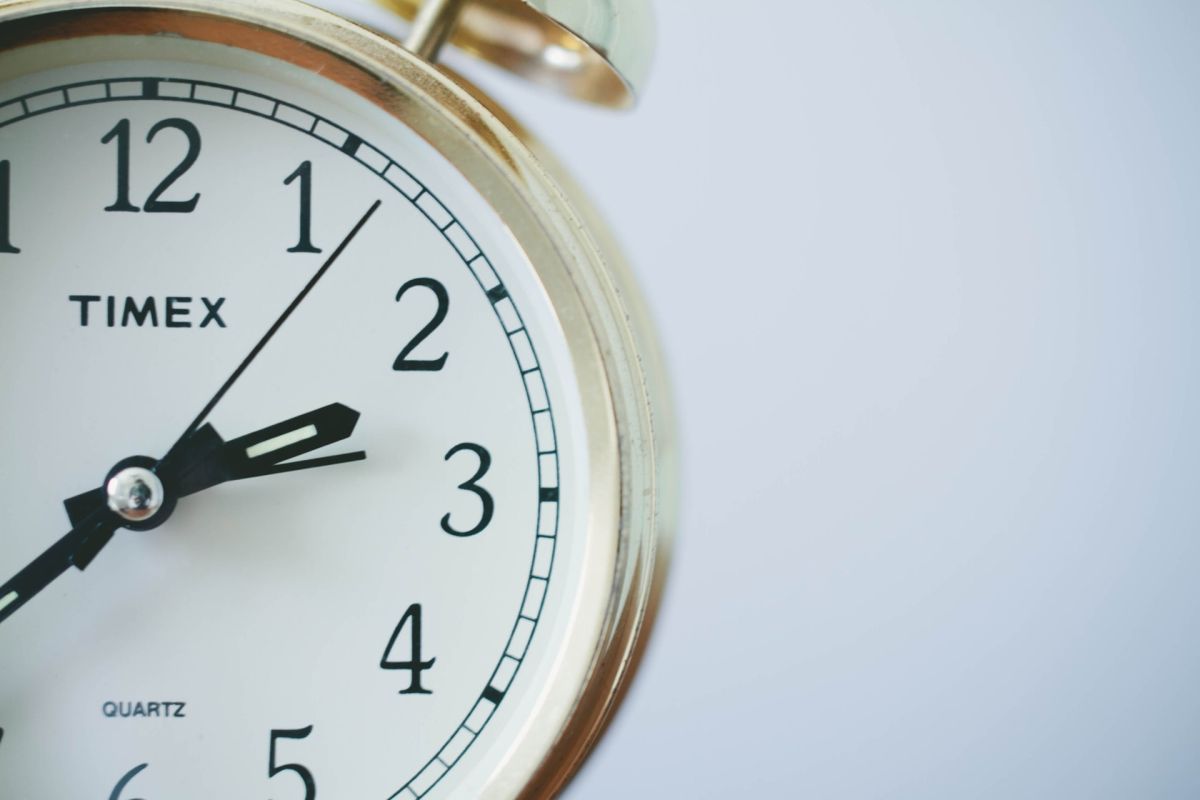Changing the clocks: That’s how the sleep rhythm remains intact

This past weekend, there was another time changeover! Twice a year we are changing the clocks by one hour, which can upset some people’s sleep pattern. How strong is the influence of the time shift on our body? And how can we maintain our rhythm of sleep? We have a few tips for your good sleep in summer and winter time!
- Reasons for changing the clocks
- How the time shift affects body and mind
- Slowly preparing the sleep rhythm for the time shift
- Listen to your body
Reasons for changing the clocks
In spring, the clock is moved forward one hour and thus announces the start of summer time. Half a year later, winter time begins by setting the clock back one hour. The time changeover is intended to improve the use of daylight. In summer time the sun sets later, so we can enjoy the daylight for a long time and use it for outdoor sports, for example. In addition, the aim is to counteract an early sunrise in the morning, which would disturb us while we sleep. In winter the time shifts again, so that it does not stay dark too long in the morning. In addition to the saving of daylight, energy savings are often cited as an argument for the time changeover. However, postive effects on energy comsumption have not been observed so far.
How the time shift affects body and mind
Psychologists, sleep researchers and other scientists are constantly discussing the effects of the time shift on humans. Especially people who suffer from sleep disorders often have problems with the changeover and suffer from discomfort. 
Some sleep researchers and biologists are against a permanent summer time, because the late sunrise in winter could have negative consequences on the human organism. If there is no daylight, the body finds it harder to get going because the so-called sleep hormone melatonin is produced in the dark. Without daylight, the body lacks the energy to start the day. On the other hand, the long hours of brightness in summer can be a disturbing factor for people who have to get up very early in the morning. Because of the bright light late in the evening, it is sometimes very difficult to fall asleep, which means that the night is short. In the worst case, this can lead to a permanent lack of sleep during the summer, which often causes health problems. Scientists at the University of Salzburg argue that the negative effects of the time shift have not been sufficiently researched yet. In addition, according to the scientists, sleeping habits are very individual nowadays anyway. Therefore, it is difficult to please everyone!
Slowly preparing the sleep rhythm for the time shift
In order to prevent sleep problems after the time changeover, it may be worthwhile to prepare slowly for the time shift. If possible, start a few days before the changeover to summer time by going to bed a little bit later and getting up later as well. If you have flexible working hours or are currently on vacation, this can certainly be done. Preparing for winter time is usually easier. Then you should gradually go to bed earlier and get up earlier as well. This way, the sleep rhythm is not changed suddenly. Instead, your body can slowly get used to the shift in rhythm, so that you won't notice the time changeover too much.

In order to prevent the sleeping rhythm from being influenced by too much daylight, you should darken the bedroom properly. If you don't want to be woken up by the first rays of sunlight or kept awake by long summer evenings, you should use blinds to keep the light out of the bedroom. Remember, however, that this may make it difficult for you to get up. Therefore, it is best to let some daylight into the room once you wake up in the morning!
Listen to your body
Pay less attention to the bedtime and listen more to your body. When you notice that you are tired and your energy reserves of the day are used up, it is time to go to bed - even it would be too early for that according to the summer time. On the other hand, you shouldn’t try to stay awake at all costs, either. Pay attention to your body's signals to establish a natural sleep-wake rhythm. Light alarm clocks or smart alarm clocks from sleep apps can help you to wake up more comfortably in the morning. Instead of being frightened out of a deep sleep, you will be awakened gently - this makes the start into the day much easier!
